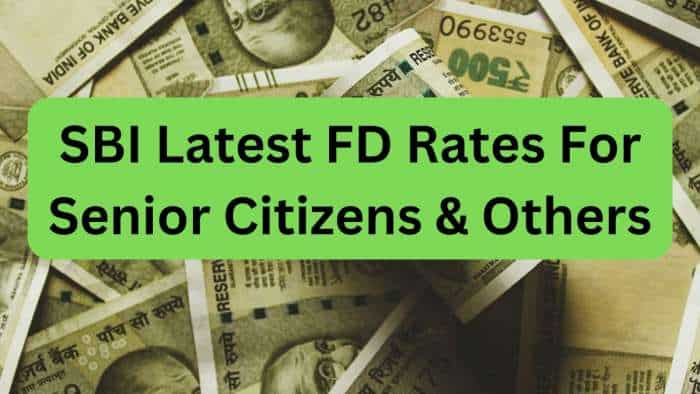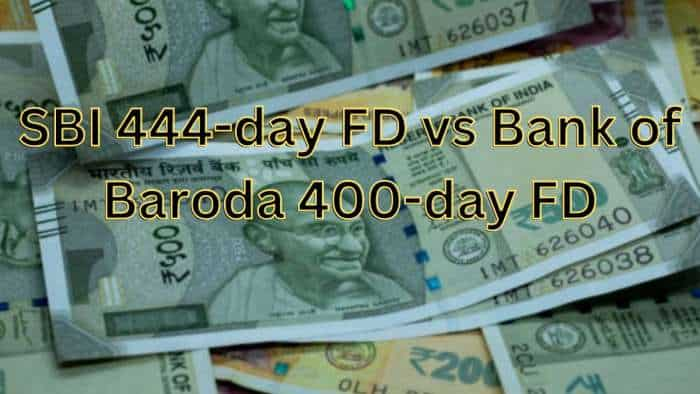Credit Card: Are there some disadvantages of using credit cards? Know how to avoid them
To ensure that cardholders are not overspending, they need to maintain a limit on their purchases while using the credit card. In such cases, one can fix their usage to 50-60 per cent of the overall credit limit and stay tight on unnecessary expenses. Financial advisors suggest that credit card usage limit should be up to 30 per cent.
)
In recent times, credit cards have become one of the must-have financial tools and an indispensable part of people's lives, thanks to their ease of use and convenient payback options. Having a credit card provides a lot of discounts, offers and deals that remain unmatched by any other financial product. However, credit cards also come with a set of disadvantages that can bring a few challenges for cardholders if not used correctly.
If you are new to the world of credit here are a few disadvantages you should be aware of to avoid any financial crisis.
Disadvantages of credit cards and how to avoid them
Overspending: Credit card users often end up making unnecessary purchases exhausting the available credit limit and further fall into a debt trap. This also results in overspending, making users owe more than they can actually pay back.
To ensure that cardholders are not overspending, they need to maintain a limit on their purchases while using the credit card. In such cases, one can fix their usage to 50-60 per cent of the overall credit limit and stay tight on unnecessary expenses. Financial advisors suggest that you should keep your credit card usage ratio with 30 per cent of the available limit.
Frauds: There are also chances of credit card fraud, with possible chances of fraudsters accessing the users' card details and confidential information. This can often result in improper use of the cards for making purchases.
To avoid any fraud, one needs to keep the credit card details secured by not revealing the information in public and by also checking the credit card statements on a regular basis.
High charges: There are often higher levels of interest charges on credit cards that cardholders overlook at the time of using their credit cards. This can often result in huge bills and high debts. This usually happens when the bills are not cleared within the due date.
One must ensure that they pay their bills on time and also avoid unnecessary expenses.
Hidden costs: Credit cards seem easy to use and access, however, banks often added certain hidden costs to them that can increase the overall bill amount at the end of the month. Some of these include late payment fees, joining fees, renewal fees, and processing fees.
Before applying for a credit card, one must go through all the terms and conditions to know all about any sort of hidden charges that they might need to incur while making purchases.
Minimum due: One of the biggest disadvantages of a credit card is the minimum due amount that is mentioned at the top of the credit card statement, which makes the users think that the minimum amount is their total due. However, that's not the case as it is the least amount that the company expects one to pay to continue receiving credit facilities. This makes them spend more.
It is very important to go through the credit card bill statement thoroughly to understand the actual bill amount, instead of confusing it with the minimum due amount as mentioned in the bill. With only minimum due payment the interest amount increases on the pending due and this leads to more financial burden.
Get Latest Business News, Stock Market Updates and Videos; Check your tax outgo through Income Tax Calculator and save money through our Personal Finance coverage. Check Business Breaking News Live on Zee Business Twitter and Facebook. Subscribe on YouTube.
RECOMMENDED STORIES

Ppf interest rate maturity retirement corpus planning calculator how to get inr rs 85000 month tax free income from public provident fund calculations 80c tax benefits what will be interest amount

SBI Latest FD Rates: This is what you can get on Rs 10 lakh investment in 1-year, 3-year, and 5-year tenures
10:43 AM IST










 Hidden charges on SBI ATM cards: Is your money disappearing quietly?
Hidden charges on SBI ATM cards: Is your money disappearing quietly? Latest personal loan interest rates for SBI, PNB, Bank of Baroda, HDFC bank and ICICI bank
Latest personal loan interest rates for SBI, PNB, Bank of Baroda, HDFC bank and ICICI bank 8 post office investment schemes that offer over 7% guaranteed return
8 post office investment schemes that offer over 7% guaranteed return Millennials turning towards new-age investment instrument fractional investing: Report
Millennials turning towards new-age investment instrument fractional investing: Report  Income Tax: How are e-filing and e-payment of taxes different? Know details here
Income Tax: How are e-filing and e-payment of taxes different? Know details here